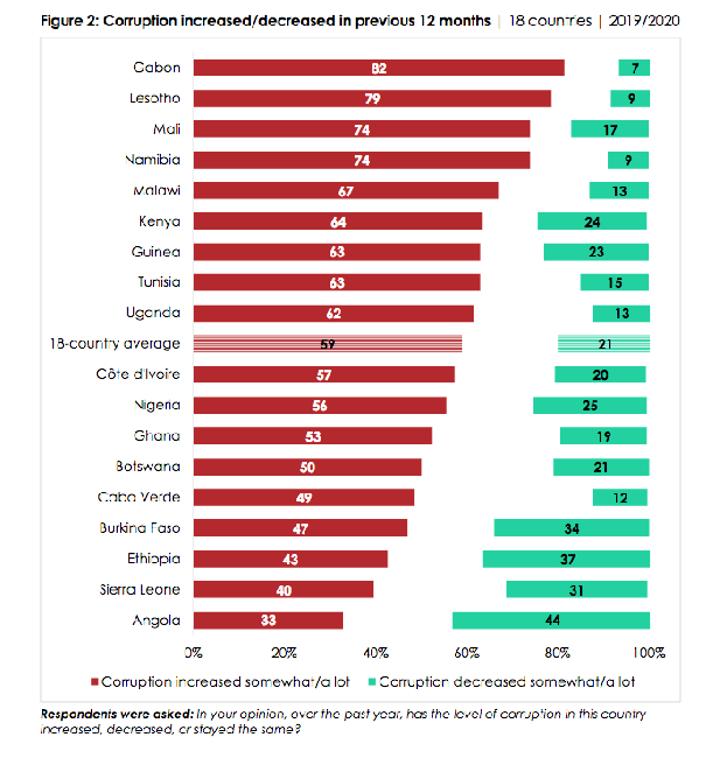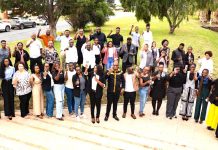Africa-Press – Namibia. NAMIBIA has been ranked among the top four African countries with high levels of widespread corruption.
According to the latest Afrobarometer report, 74% of Namibians believe the country has not improved in terms of fighting corruption, alongside Gabon (82%), Lesotho (79%) and Mali (74%).
This is despite an estimated 7% of the citizens indicating that they had to pay a bribe to obtain any public service. These measurements were taken before the Fishrot exposé, which has implicated Cabinet ministers, their friends, business partners, as well as the ruling party Swapo.
More than N$2,5 billion is estimated to have been stolen from Namibia’s fishing industry through various schemes orchestrated by Fishrot masterminds. As a result of the Fishrot scandal, Namibians now believe the country is doing worse, than in other African countries, in terms of fighting corruption.
The latest Afrobarometer report on the perception of corruption was compiled after a survey spanning 18 African countries. The Afrobarometer is a pan-African, non-partisan survey research network that provides reliable data on Africans’ experiences and evaluations on democracy, governance and quality of life.
The report states that in general, developing countries lose U$1,26 trillion a year to corruption, theft and tax evasion. That amount of money is enough to lift 1,4 billion people above the poverty line for six years, according to the report.
The growing corruption and the inability of governments on the African continent to effectively deal with corruption could make it impossible for countries to achieve sustainable development goals.
In the 18 countries studied, the report states that 48% of the people believe police officers are the worst offenders in citizens’ eyes, but even many healthcare providers demand bribes.
Members of parliament (38%), civil servants (37%), judges and magistrates (35%), tax officials (35%) and presidency officials (35%) are also viewed as corrupt.
“Most citizens say their government is doing too little to fight corruption. And in a bad sign for activists working to engage citizens on this issue, most Africans say they risk retaliation should they report cases of corruption to the authorities,” the report states.
Allegations of corruption involving the Covid-19 pandemic relief are also rife on the continent. In Angola, more people see a decrease (44%) than an increase (33%) in corruption.
For More News And Analysis About Namibia Follow Africa-Press






